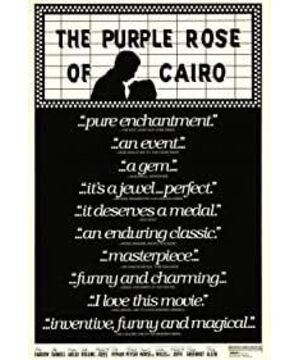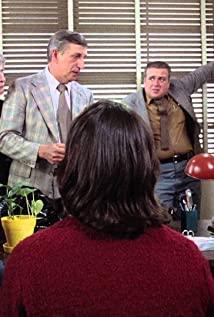Godard once said that "a film does not take place on the screen, but between the audience and the screen". From an objective point of view, Godard's original intention may be to explain the film's own sense of communication and substitution. However, three decades later, with the improvement of film industry technology, Woody Allen reinterpreted this sentence with "Purple Rose of Cairo". Of course, this is only from Woody Allen's narrative plot and whimsy, because this kind of play-in-play really makes the movie characters come out and talk to the audience. I personally think that Woody Allen's films always make the audience not do it. The observer, but a participant, has broken Brecht's fourth wall in another sense compared to his "Annie Hall" before him. The addition of "Purple Rose of Cairo" to the elements of the drama makes the film no longer simply stay on the theme of love. Personally, I think it can be divided into three levels.
One is self-contradiction, Cecilia’s personal confusion about self-recognition, in the economic depression, a middle-aged woman silently endures an unemployed and alcoholic husband every day, the only fun is to go to the cinema to watch movies. Until Tom walked out of the play and the infinite fantasy brought to him by Gil's show of love gave her a certain sense of self-identity in the process, and even extended to the awakening of women's independent consciousness. The United States can be said to be the pioneer and representative of the times, which is also in line with Woody Allen's films with a humanistic concern for women.
The second is the contradiction between people, Cecilia is in a dilemma between Gil and Tom. Both of them appeared in front of Cecilia like a savior. One was the male lead in the movie who was fascinated by her but had a difficult life, and the other was the suave male actor who was actually taking advantage of her. The former's love is so real, but it can't be used in real life; the latter's love is so hypocritical, but when the reality fades, it looks so vulnerable. I think this seems to be a kind of role dislocation to a certain extent. The complicated relationship between the three seems to be a paradox that everyone will encounter in their lives under the ingenious arrangement of the director. Can you have both, the moon and sixpence. At the end of the movie, Tom returned to the movie world, Gil went to Hollywood alone, and the relationship between the three was consistent in this dramatic tension, fading away from the short-term beauty, and finally only Cecilia was left alone in the movie theater, maybe she was the only one. The so-called people who are really trapped in the movie.
The third is the contradiction between people and society. At the time of the Great Depression in the United States, people saw the hope and future of life, and entertainment became a fashion. The film itself has a very strong sense of substitution, and at that time it was the development period of the film industry, the frustration of life and the unique deceptiveness of the film, people could not help but doubt the real society, so they invested in the world of the film. In the worst era, Cecilia was just a silhouette of a group of people in that era. If it weren't for that era, who would have given up pure love to choose realistic bread. In that era, love seemed to have become as illusory as a movie, only a deceptive pastime.
This fantasy film might seem like a cluttered popcorn flick now, but it was a daring innovation back in the 1980s. Combined with the reverie in the context of the times, this film brought a good reputation at the time. The element of the play within the play adds a lot of color to the movie. For example, the characters of the movie are trapped in the screen, but they have independent thoughts. If life is also a movie, then each of us can be trapped in it. And that screen is the moral ethics in reality. Woody Allen once said that "subjectivity is objective". I think objectivity is also composed of countless subjectivities. Whether this real world is constructed subjectively or exists objectively is just like a movie—if it is false, it is also true, and when it is false, it is true and false. It also makes the audience start to think about what a movie is, so looking at this movie is also endowed with some philosophical thoughts. In addition, the reason why the director wants to put the background of the era in the bubble economy of the last century, I think it is not only a reflection on the bubble economy, but also compares the love of that era to a bubble.
Hegel once said that "the aesthetic value of love description lies in its wide tolerance and possibility of reflecting the objective world", and I often think that the essence of this sentence lies in the last three words - possibility, film and reality Which may be true love or bread which may be true. If it is removed, it may tie love to the subjective world, then when love breaks through the fourth wall, it will be criticized by reality and regarded as illusory. I also hope that the legend of the purple rose in Cairo is true.
View more about The Purple Rose of Cairo reviews











